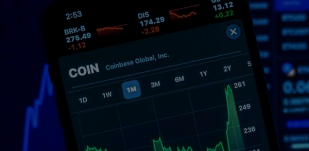What is a Bank Sort Code (BSC)?
When you open a bank account in the UK, you will be issued a bank account number and a bank sort code, allowing you to use a full range of banking services. So, what is a sort code?
BSC is an acronym sometimes used in place of the more commonly used bank sort code, or just sort code. A system introduced to the UK in the 1960s, unique sort codes are used to identify specific banks and branches to make transactions faster and more reliable.
Called a sort code in the UK, the American equivalent would be the American Bankers Association number (ABA).
Let’s explore the makeup of your sort code, its importance, how to use it and when to use it.
What do bank sort codes look like?
A sort code works because of the numbers it’s made up of, usually arranged in three groups of two like this: 11-22-33. Let’s break these down:
- The first two numbers identify the bank
- The last four identify a particular branch of that bank
Sort codes are a vital element of the payment process because they allow financial institutions to confirm the validity of a transfer and correctly route money between accounts.
If you enter the sort code incorrectly, your money may end up in the wrong bank branch, or even with a different bank.
How do I find my sort code and account number?
You’ll find your bank sort code and your account number on your bank card, any of your bank statements or in your account details within the secure area of your online banking.
To guarantee you have the right sort code, it’s possible to check them online using sort code checker software. This will provide you with a lot of useful information about the bank. Most importantly, it will confirm the name of the bank and the name of the receiving branch.
When do I use an account number and sort code?
It’s generally considered safe to provide your account number and sort code. Always use common sense when doing so and avoid sharing your bank details with people you don’t know or expect payments from.
Typically, you should only give your account number and/or sort code out if:
- You’re receiving bank transfers/payments from someone you know - such as friends, family and employers.
- You’re setting up a Direct Debit.
If you’re making a payment to or from a bank account in the UK - internationally or domestically - you will always need to provide the relevant account number and sort code of the recipient.
Is a sort code the same as a BIC?
Bank Identifier Code (BIC) codes - also known as SWIFT codes - are similar to sort codes but with a fundamental difference: sort codes identify banks within the UK (English, Welsh, Scottish, and Northern Irish banks), while BIC codes are used for international payments.
BIC codes are the international equivalent of a sort code. Therefore, they make it possible to execute bank transfers across the globe.
Another difference between the two is the number of characters they are made up of: a BIC code contains 8-11 alphanumeric characters, while a sort code contains six numbers.
Make international payments with Clear Currency
As you can see, these six numbers play a vital role in the payment process. Without them, it would be impossible to confirm the validity of a transfer and route your money to the intended account.
There’s much to consider when sending and receiving money overseas. Now you’ve got to grips with sort codes, take the time to understand the benefits of using a currency specialist like Clear Currency to make international payments. Our bespoke personal service and foreign exchange know-how will help you make quick and secure payments that are shielded from currency risk.
Open an account today for competitive exchange rates and quick and secure transfers.
Related Articles
How to Mitigate Foreign Exchange Risk
Currency risk can have a significant effect on the efficiency and profitability of any international business. Each exchange rate movement affects how much you receive from sales and what you pay to suppliers.
Read more
Moving to Dubai from the UK: Checklist
You’re ready for a new life overseas and have decided you’re moving to Dubai. Now it’s time to consider the various costs involved, from your visa and accommodation, to health insurance, shipping your belongings and bringing your beloved pets along too.
Read more
Currency Outlook Quarter 1 2023
Clear Currency looks back at the performance of the US dollar, euro and sterling in Q4 2022, and assesses what might be in store for Q1 2023.
Read more


